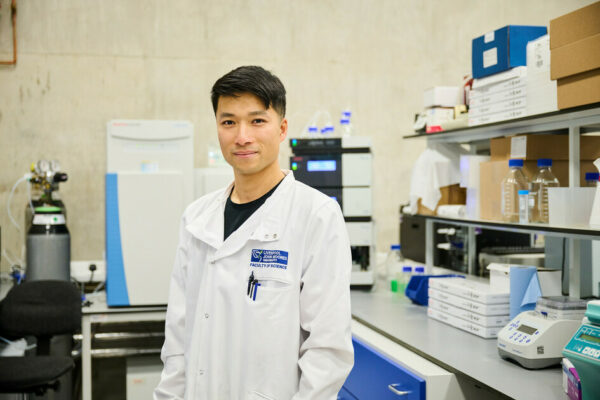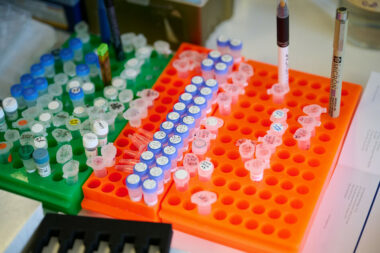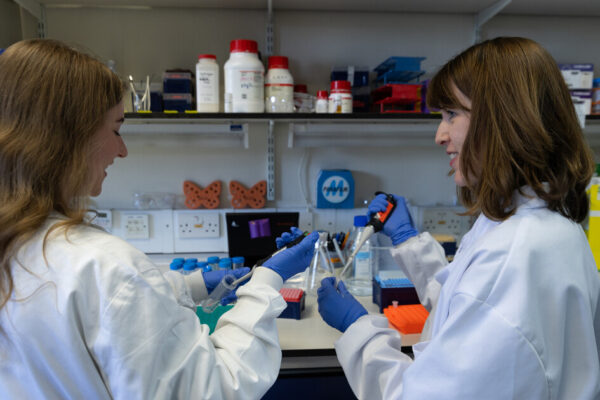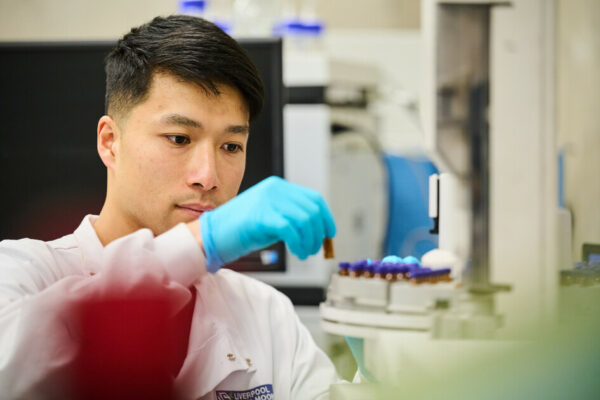We take great pride in the research projects we support. They generate breakthroughs in the understanding of muscle wasting and weakening conditions, leading to better management of muscle wasting conditions and the development of treatments.
Our research impact

Each year, following a thorough process, we award on average 10 new grants to research teams so they can study some of the over 60 conditions we cover. We review these grants on a yearly basis to make sure they’re progressing well. We also ask our researchers to tell us about the impact of their projects each year. This can include information about scientific papers, how their research is influencing policy and clinical care, and whether our funding has helped them engage with the public, for example, by giving talks so that help people understand more about muscle wasting conditions.
Information is collected during the lifetime of a grant and for five years after it has finished.
Here are some interesting facts and figures about the research we support.
Example: every month, we bring you a summary of a recent scientific paper published by teams funded by us. These summaries are written by our Research Communications Volunteers. This is a group of wonderful people with experience in research or science, who help us deliver latest updates in research into muscle wasting conditions. Read our latest research summary about diagnosing dysferlinopathies by MRI here.
Collaborations happen when researchers, clinicians and other specialists from different institutions, come together to make research better. They do this through sharing their experience, insight and expertise. These collaborations can include partnerships, networks, and multi-centre studies. No two researchers are the same, and by collaborating they bring together their, often different, strengths and expertise, in order for that research to be more detailed, or across different disciplines (for example, a researcher with expertise in genetics might need to collaborate with computer biologists to help them understand the results their research shows).
Over 75% of our research funded grants in the last 10 years were based on close collaborations between teams in the UK and across the world.
It’s important that the research we support is carried on further. To do this, our researchers need more funding. Sometimes these grants are from us and sometimes research teams will apply to other funders. Often the research we fund can help leverage further funding in the future, so that particular research can move forward. Likewise, in order to bring basic research results closer to the clinic, further funding is very important.
Engagement activities are important for us because they help spread the word about the research we fund. These activities aim at engaging families, carers, fundraisers, donors, the general public and other groups of people who are not directly involved in research through talks, news articles or stories for non-academic magazines. This is a great way of raising awareness of muscle wasting conditions, as well as educating relevant audiences about rare conditions.
We also want to know if, and how, the research we fund influences various policy areas, such as health or social care. These policies can help improve the quality of lives or the access to care for people living with muscle wasting conditions.
We’re grateful to our researchers for their time and effort to help us collect this information. We’re committed to funding the best research, which we hope will change and improve lives now and in the future.
Our research
We’ve already made advances that would have been unthinkable just 10 years ago, and we are determined to go even further and faster.

Every day we’re working towards a future with effective treatments and ultimately cures for all muscle wasting and associated neuromuscular conditions. We believe this as passionately now as we did when we were established in 1959. It is this vision that unites us all and continues to drive our research strategy.

Browse our groundbreaking research to further our understanding of conditions, develop effective treatments, help people to live well and inform better care.

All of the projects we fund have gone through a vigorous peer review process. This ensures we’re funding the best quality science that’s relevant for people with muscle wasting conditions.






